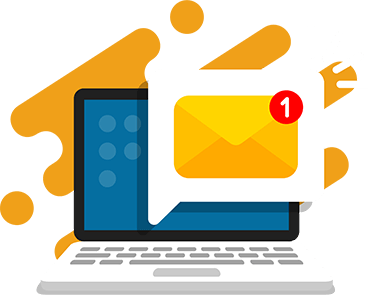With the rise of AI-generated code, many parents are asking: Does my child really need to learn to code anymore?
The answer is still yes. But the reason why has shifted.
The workplace is moving toward “AI + human” teams. People who can code (even at a basic level) will be the ones who design, supervise, and extend what AI produces. That’s a more valuable position than being a passive user.
There’s indeed been a rapid adoption of artificial intelligence, with 39% of the U.S. population now using generative AI either for work or outside. However, humans are still vital in the development process.
Here are the five biggest reasons why coding is still one of the most valuable skills kids can learn to thrive in an AI-driven future.
1. Coding Skills Keep AI from Becoming a Black Box
Without a foundation in programming, artificial intelligence can become a mysterious black box for kids. Knowing how to code demystifies AI, so they can:
- Learn what’s possible with AI and what’s not
- Build confidence using AI without feeling like uninformed users
- Understand exactly what they’re trying to accomplish before turning to AI
- Recognize biases in AI and use it responsibly
Instead of blindly accepting outputs, teaching kids to code helps them understand why AI behaves the way it does.
Our virtual AI camps start with an overview of how artificial intelligence works. Most students have no idea, even though they use it daily, so this gives them more confidence and understanding. We introduce kids to the fundamentals of AI and machine learning before actively using AI to solve a problem.
2. Kids Can Use AI to Its Full Potential
Artificial intelligence can be an incredible partner — but only if kids know how to leverage it. As of 2025, 82% of developers report using AI tools weekly to assist in their work. Learning coding fundamentals helps kids:
- Write smarter prompts to get the most out of AI
- Shape AI’s output toward their goals
- Use the right AI tools for the purpose
Most kids are already using AI for school and to generate ideas. By learning coding now, kids will be equipped to get the most out of AI.
We introduce AI to students as young as 8 years old. During our AI camps, kids train, test, and refine a Machine Learning model equipped with Computer Vision capabilities to recognize patterns in images. They learn to create AI and later integrate it into a web application.
3. Kids Learn to Critically Evaluate AI’s Output
AI-generated code isn’t always correct — and without coding knowledge, kids won’t know the difference. Coding trains them to:
- Debug errors and refine AI-generated outputs
- Spot when coding assistants “go off the rails”
- Know when to reject results instead of accepting flawed solutions
This critical thinking ensures they stay in control of the technology, not the other way around.
We teach students to accept AI responses with a grain of salt. While AI can save a lot of time, developers report accepting only about 30% of AI-generated code as written.
4. Coding Skills Plus AI Create a Complete Solution
AI can generate pieces of code, but only kids who know programming can take those pieces and assemble complete, working solutions. Coding knowledge allows them to:
- Customize and expand on AI-generated code
- Integrate AI into an ecosystem to solve real-world problems
- Bring their own ideas to life, instead of being limited to what AI suggests
Students in our AI camps use AI to solve problems while building a fun and interactive game. Developing the game requires a combination of AI and code to achieve a complete solution.
According to Fortune, “Over 25% of Google’s code is now written by AI.” Having AI assist with writing code frees up human developers to focus on higher-level tasks like architecture and design.
In the future, the most valuable people won’t just use AI — they’ll direct it.
5. Helps Kids Develop Lifelong Problem-Solving Skills
Coding doesn’t just prepare kids to work with AI — it builds transferable thinking skills they’ll use everywhere.
- Breaking big challenges into smaller steps
- Thinking logically and systematically
- Persisting through trial and error
- Learning from mistakes and iterating
Even if AI changes how code gets written, these habits of mind remain essential for school, careers, and life.
Learning to code in the age of artificial intelligence isn’t about competing with machines — it’s about understanding, guiding, and maximizing them.
According to Google’s CEO, Sundar Pichai, the use of AI-assisted code is about “engineering velocity (not replacement)”.
In a world powered by AI, the next generation of creators won’t just use technology — they’ll lead it. Coding skills give kids the clarity to understand how things work, the confidence to shape what’s next, and the creativity to build something entirely their own. At CodeWizardsHQ, we start with strong fundamentals, then layer in AI as a productivity enhancer and co-creator — empowering students to use technology not as a shortcut, but as a force for innovation.
